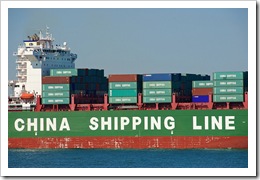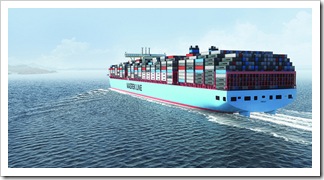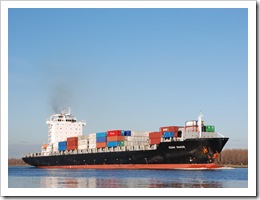
CHINA Shipping Container Lines (CSCL) is teaming up with United Arab Shipping Company (UASC) on its new GEM service connecting Turkey, Port Said, Red Sea, Middle East Gulf, Pakistan and India.
The first GEM sailing is scheduled for November 22. The service will call at: Port Said, Mersin, Istanbul, Izmir, Port Said, Yanbu, Jeddah, Khor Fakkan, Sohar, Port Sultan Qaboos, Karachi, Hazira, Mundra, Khor Fakkan, Jebel Ali, Bahrain, Jubail, Khor Fakkan, Jeddah, Yanbu and back to Port Said.
For the first time, the port rotation includes the Indian port of Hazira in Gujarat state, which is located about 120 nautical miles north of Nhava Sheva and Mumbai. The first call at Hazira is slated for December 20. The ships will be handled at the new Adani Hazira Container Terminal (AHCT).
A report by Alphaliner said the GEM service will also include sections of UASC's UAE-Pakistan-India service (IMC1/IMC2) as well as the carrier's Middle East feeder service (AEC1), from where the UASC ships switch deployment to join the GEM service.
In addition to direct port calls, the GEM service will provide connections to other East Mediterranean and North African ports through relay services via Port Said and will serve a number of Black Sea ports through relay services from Istanbul.
The CSCL will provide one of the eight 3,800- to 4,250-TEU ships used to operate the service, namely the 4,250-TEU Xin Yang Shan. The other seven vessels will be provided by UASC.







